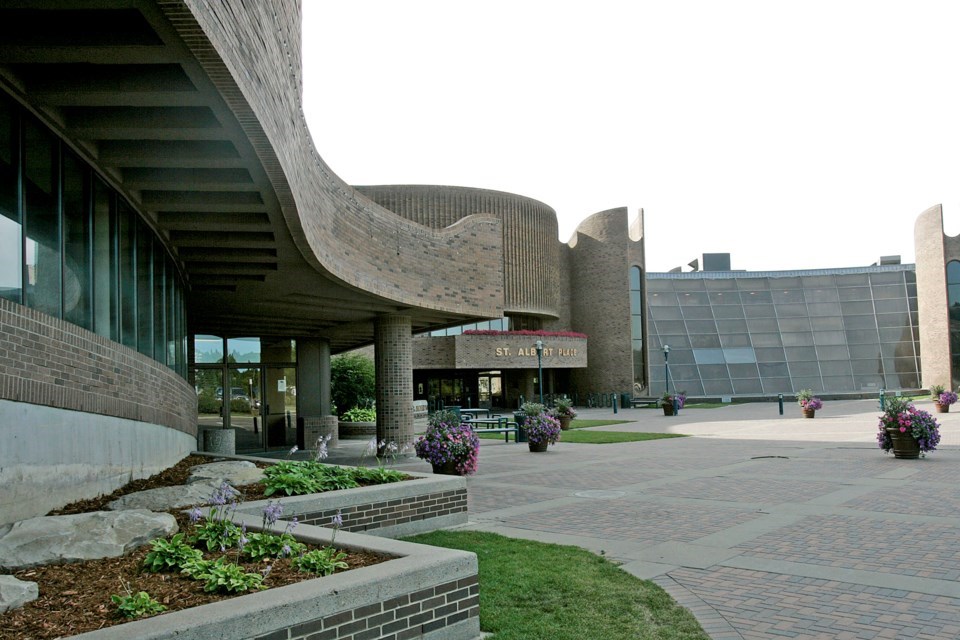The average St. Albert homeowner could see their tax bill go up an additional $175 in 2023 should council approve the city’s newly proposed budget.
On Monday, administration presented the draft 2023 budget to council. The draft includes an operating budget of $125.1 million and a 4.6 per cent tax increase; an extra $175 per year in taxes for the average house costing $450,000 (bringing the tax bill up to some $4,000 annually). The proposed increase is down from the projected 8.2 per cent the city said in August would be needed to maintain service levels because of factors such as inflation.
“This year, we again used one-time funding to offset tax increases,” Bill Fletcher, the city’s chief administrative officer (CAO) told council.
These measures include the use of $1.4 million in reserve funding, a $500,000 reduction in library grant funding, as well as cancellation of the public art reserve and community capital transfer.
The city also factored in cost savings for 2023 from the ongoing closure of Fountain Park pool, slated to continue until July 2023. Also factored into the tax increase reduction is a 50 per cent hike in electrical franchise fees (a fee electricity customers see on their monthly utility bills).
The tax increase includes a pre-approved 1.5 per cent annual increase to the city’s budget to repair, maintain, and replace (RMR) its infrastructure.
Not included in the budget is a reduction to grants non-profits receive, though in the draft administration noted council could consider a reduction during budget debate.
Fletcher told council using one-time measures to address a higher tax increase is “not sustainable over the long term,” noting the city will now be looking to non-traditional sources of revenue and service reductions.
“In the short term, if we want to keep our tax increases low, we cannot continue to proceed with a tax increase that does not address the full requirements of our growing community,” Fletcher said.
St. Albert’s 10-year residential tax increase average is 1.7 per cent, he said.
The city will explore other measures to reduce the tax increase, such as service reductions, in the coming year.
One-time measures
Of the measures the city is proposing to achieve the tax increase of 4.6 per cent, the city is suggesting the community capital grant — some $250,000 the city sets aside each year for non-profit community groups to work on capital projects such as building playgrounds — be cancelled.
Administration is also proposing to cancel the public art reserve transfer: $258,000 the city would have set aside to fund the purchase and maintenance of art displays. Should council later approve the budget as-is, it will be the fourth year in a row the city has held off on the transfer.
In August, council discussed a $1.5 million reduction to the library’s annual grant funding of $4.6 million, phased in over the next three years. A proposed $500,000 reduction for 2023 would mark the first increment of the phased-in cut.
Administration is also proposing using $1.4 million in funding from the stabilization reserve — the city’s fund for unforeseen one-time events — to reduce the tax rate.
The city still has $2.5 million left in the reserve, Diane McMordie, the city’s interim assistant deputy CAO (internal) told council.
Utility rates proposed to increase 3.8 per cent
In addition to paying more taxes, the average household would also pay around $63 extra per year on their utility bill. The city is proposing a 3.8-per-cent increase to utility rates for 2023, which for the average household amounts to an additional $5.23 a month.
This means the total average monthly utility bill will total some $144.
In the draft budget, the city said there are “numerous challenges facing today’s utility operations,” including replacing old infrastructure and the need to address changing environmental standards.
New full-time positions proposed
The city is looking to use $1 million in assessment growth — additional taxes generated by new properties — to fund several new business cases. Many include new city positions, or requests to make some existing positions full time.
Examples of new positions include a procurement specialist to “address current work load capacity” and work on implementing the city’s previous procurement audit ($82,500), and an IT security analyst to “ensure that the city’s data, information, and services are protected from intentional or unintentional access and destruction" ($81,300).
Council members will pose questions of administration about the budget on Nov. 3 and 7, with deliberation beginning Nov. 29.
Residents and businesses are invited to visit conversation.stalbert.ca to give feedback on the proposed budget until Nov. 10.




